The Topic of “Psychology from Diverse Perspectives” Addressed at an International Workshop Held at Our University
Hosted by the Turkish-German University and organized by the Faculty of Cultural and Social Sciences on April 8, 2025, the international workshop titled “Psychology from Diverse Perspectives / Psychologie aus diversen Perspektiven” was held with valuable academic contributions. Within the framework of the interdisciplinary foundation of the social sciences, the event provided meaningful insights into social interaction, intercultural contexts, and the causes and processes of migration from the perspective of psychological science and research.
In the opening session of the workshop, our Rector, Prof. Dr. Cemal Yıldız, emphasized the leading role of psychology in the individual quest for meaning and purpose in life, and also highlighted its importance in analyzing societal phenomena such as identity, migration, and trauma.
Our Vice-Rector and Dean of the Faculty of Cultural and Social Sciences, Prof. Dr. Aysel Uzuntaş, underlined the concept of interdisciplinarity in her opening speech and stressed the necessity of approaching the field of psychology from multiple perspectives.
Following the opening address by Assoc. Prof. Dr. Rainer Schmidt, the Faculty Coordinator, which focused on psychological approaches from both natural and social sciences, the presentation phase of the workshop commenced.
The first session of the workshop presented a multilayered approach to psychology and human experience from a cognitive perspective, addressing neurocognitive processes, mental functions, individual differences, and ways of perceiving the external world. Examples of research on mental capacities such as perception, decision-making, and reasoning were shared, and the importance of diverse methodological approaches used in such studies was emphasized. Under the theme of individual differences and performance, general features of cognitive performance and topics such as problem-solving were discussed through theoretical frameworks concerning brain function. These approaches were also evaluated in terms of the relationship between psychology and phenomenology, particularly within the context of visual perception.
The second session focused on psychological resilience and trauma. The development, symptoms, and consequences of trauma were thoroughly discussed. Subsequently, the concepts of self-differentiation and self-development were explored in relation to emotional, cognitive, and social dynamics. Additionally, cultural analyses of marital problems from a social perspective were presented by distinguished scholars who contributed to the workshop.
In the final session, a presentation was delivered focusing on the general analysis of psychology departments at universities in Turkey, followed by a discussion titled “Psychology Education in Turkey and Germany.” Topics such as curricula, internship and application criteria, research methodology, laboratory facilities in education and research, partnerships and differences in dual-degree programs, specialization, and graduate education structures were evaluated in detail by experts from both Turkey and Germany.
Throughout the workshop, the cognitive, neurocognitive, phenomenological, cultural, and social dimensions of psychology were discussed in a multifaceted way through the contributions of various academic perspectives. This event, which encouraged reflection on psychology and psychology education across different methods, approaches, and cultural foundations, offered a productive and enriching academic environment for knowledge and idea exchange.

